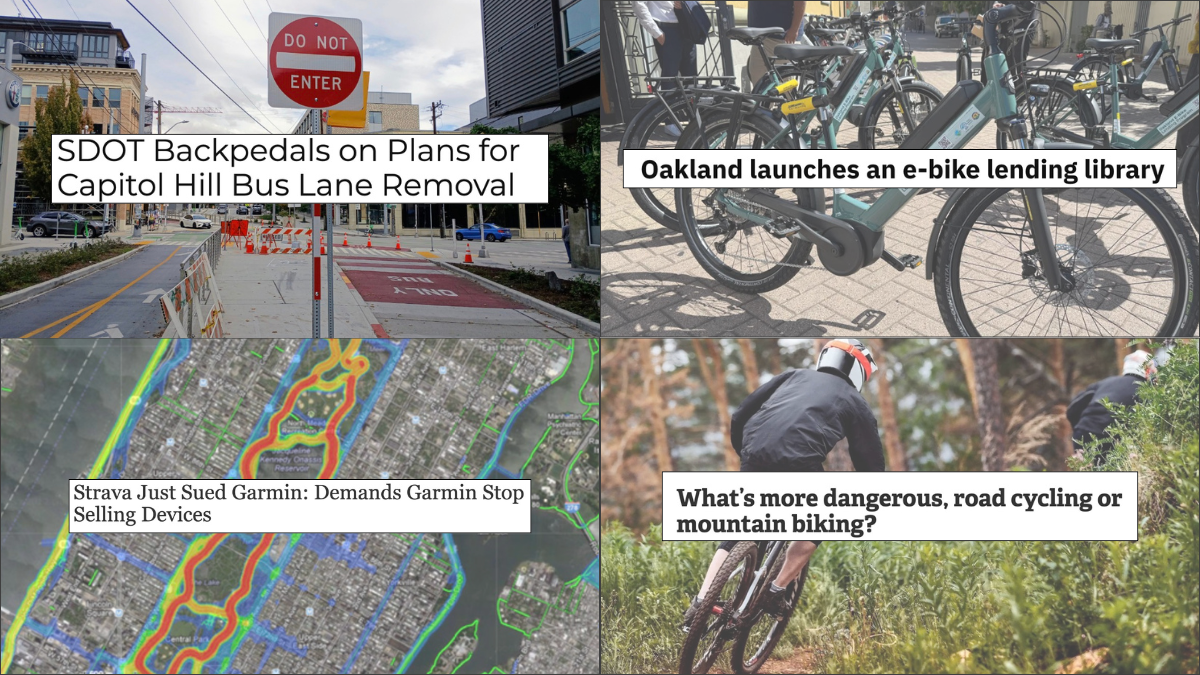Hi friends. Welcome to the week. I hope everyone is doing okay amid talk of federal troops and the latest onslaught of unhinged behavior from Trump and his cronies. Meanwhile, we have a city to run and work to do. Let’s get right to it by making sure we’re up to date with the most notable stories and other content from around the web in the past week.
E-bike lending library: I’ve heard through the grapevine that folks in our region are working on having e-bikes available on loan from libraries. This example from Oakland is a similar model. (Oaklandside)
Strongly worded letters: Interesting research in D.C. led to a firm identifying high-risk drivers and sending them a notice about how they’re more prone to crashes; and surprisingly (sarcasm), it didn’t have an impact. (WUSA)
Nature is soft: Interesting new study found that while mountain biking leads to more crashes overall, the severity of road cycling crashes is worse. That makes sense to me since there’s often more to break your fall and speeds are generally lower when you’re riding in the woods. (News Medical)
Seattle’s bus lane fight: In a story that echoes some of the recent infrastructure removal fights we’ve had in Portland, Seattle’s DOT was forced to reconsider plans to remove a bus lane after it sparked an outcry. (The Urbanist)
GPS wars: Strava has sued Garmin in a dispute over patents, saying that the device maker doesn’t have the right to market and sell technology related to segments and heatmaps. (DC Rainmaker)
The fast e-bike problem, part one: The tension around people riding e-bikes too fast around others is becoming a major story all across the country, as evidenced by this article about how folks are managing the issue in Manhattan’s Central Park. (NY Times)
The fast e-bike problem, part two: Then there’s this common scenario, when the term “e-bikes” is used in the headline, but the problem laid out in the story is really about e-motos. Regardless, people riding like jerks were a problem before e-bikes came around, but the added speed and ease to reach it is tipping this into bad territory fast. (Washington Post)
AI and the green wave: The idea of a “green wave” for cyclists — where signals turn green for riders — has been around for a long time and is even employed in downtown Portland; but this is the first I’ve heard where the signals use AI to make it happen. (Fast Company)
Who doesn’t have a car? A very helpful data dashboard and map delves into the demographics of the millions of Americans who cannot or choose not to drive. “Our findings show that this group—often overlooked in planning and policy decisions—is both large and diverse.” (Natural Resources Defense Council)
Thanks to everyone who sent in links this week. The Monday Roundup is a community effort, so please feel free to send us any great stories you come across.



